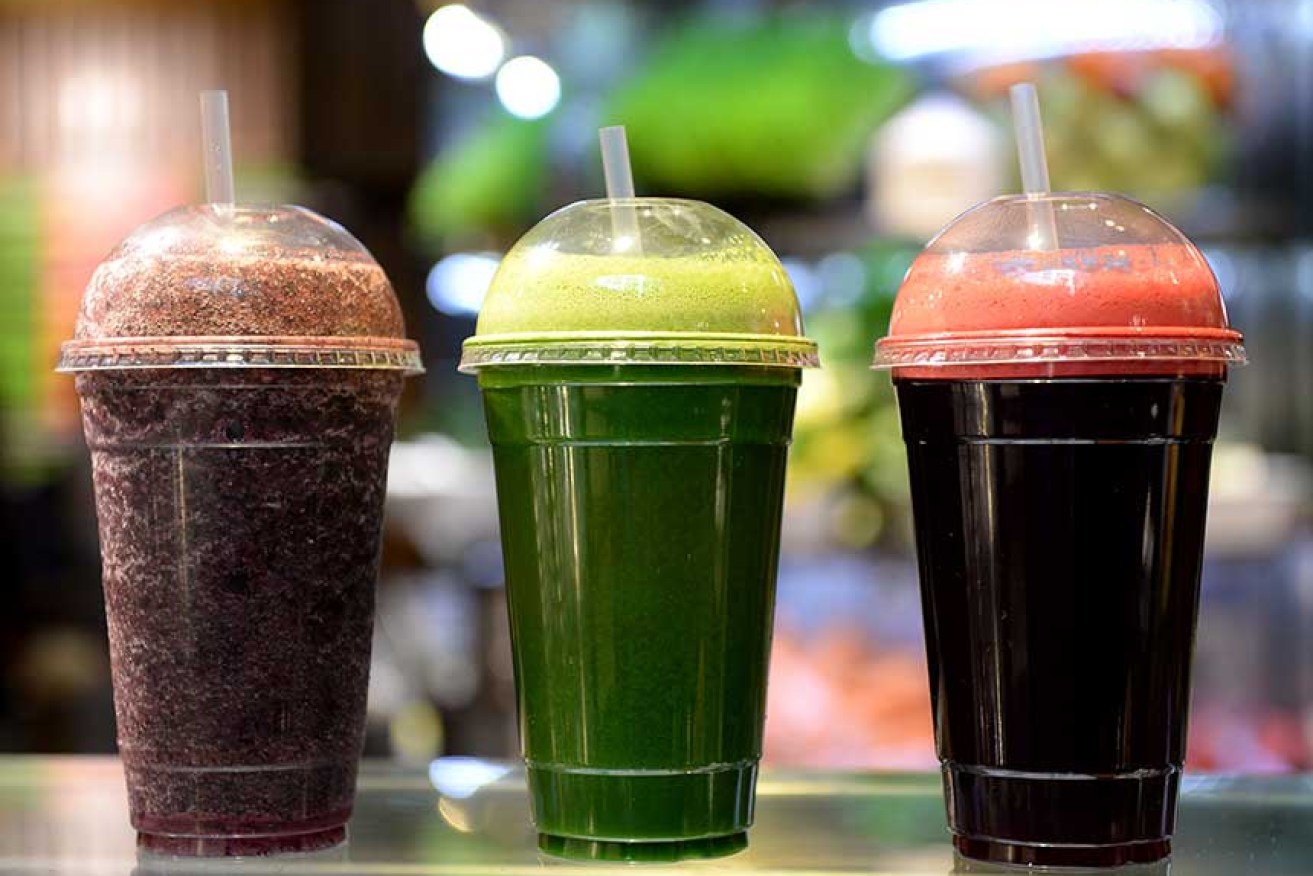The unhealthy habits you don’t know you have


AAP Images
For most people, it’s easy to know when you’re treating yourself poorly. Overeating, drinking too much, sleeping too little and not exercising are all well-known bad habits to break.
But what about the unhealthy things you don’t even know you’re doing? Activities you assume are promoting fitness and nutrition may in fact be confusing your body and limiting your ability to sleep, lose weight or maintain your immune system.
We unmask the daily activities that could be costing you your wellbeing.
• Twelve weeks to a healthier you? Not so fast
• Want to lose weight? Stick to 100 bites
• Are you getting enough exercise? Probably not
Consuming too many healthy foods
 It’s great to swap potato chips for nuts, but keep in mind that eating healthy is not a free pass to eat more.
It’s great to swap potato chips for nuts, but keep in mind that eating healthy is not a free pass to eat more.
“When you’re trading snacks for healthier options, the important thing is to trade in equal kilojoules,” Aloysa Hourigan, senior nutritionist at Nutrition Australia, explains.
“For example, avocados are a high fat food. They’re healthy so people shouldn’t be scared of eating them. But a serve of avocado is only about one quarter of a large avocado.”
Similarly, while Nuts for Life suggests “a handful” of nuts every day, they describe a handful as 30 grams – difficult to stick to when you consider that most nuts retail in packets of 75g or more.
If you’re hoping to maintain or lose weight, keep in mind that good fats are still fats and consume them accordingly.
Eating protein before bed
 Having a massive steak before dinner could be giving you a much-needed iron boost, but you’re also robbing yourself of a good night’s sleep.
Having a massive steak before dinner could be giving you a much-needed iron boost, but you’re also robbing yourself of a good night’s sleep.
“When you digest protein you generate a lot of heat and that can make you feel quite uncomfortable,” says Dr Roy McCoy, from the Australian College of General Practitioners.
Have your high protein meal in the middle of the day and stick to vegetables, fish and chicken before bed to avoid tossing and turning.
Eating low fat or sugar free foods
 Aside from containing lots of harmful chemicals, low fat or sugar-free products actually take away more than fat.
Aside from containing lots of harmful chemicals, low fat or sugar-free products actually take away more than fat.
“It’s important to think about the nutrient value of food,” Ms Hourigan says.
Rather than considering what a meal could be taking away from your diet, think about what it’s giving you.
For your immune system, bone strength, growth and brain function, you need certain nutrients that a fat free yoghurt or an artificial sweetener can’t give you.
Juice cleansing or fasting
 Skipping meals or substituting solids for liquids to lose weight may work at the time, but it could cause serious damage later in life.
Skipping meals or substituting solids for liquids to lose weight may work at the time, but it could cause serious damage later in life.
“When you’re starving there’s a mobilisation of fatty acids from your liver and when you resume normal eating they go back in quite quickly,” Ms Hourigan explains. “When people go through that feast and famine style of eating it can encourage fatty liver problems.”
It’s more helpful to eat small meals regularly than to starve yourself.
Confusing thirst with hunger
 Before you down a packet of chips, consider if you’re really even hungry in the first place.
Before you down a packet of chips, consider if you’re really even hungry in the first place.
According to Ms Hourigan, the thirst and hunger centres of the brain are closely linked and it’s easy to confuse dehydration with starvation.
If you don’t want to overeat, drink a glass of water before snacking then reassess your desire to eat.
Ignoring the texture of food
 Along with the taste, serving size and ingredients of your meal, consider its texture.
Along with the taste, serving size and ingredients of your meal, consider its texture.
A lot of fast food places produce items that are relatively easy to eat so you consume more of them.
“If something melts in your mouth, it won’t require much chewing and probably won’t fill you up – you’ll eat it faster,” Ms Hourigan says.
Spongy burger buns, frozen yoghurt or watery soup might quell a craving, but you’ll be reaching for more before you know it.
Shopping cheap
 Money isn’t always abundant, but resist the temptation to bulk buy or stock up on cheap packaged foods – especially when you encounter “two for the price of one” deals.
Money isn’t always abundant, but resist the temptation to bulk buy or stock up on cheap packaged foods – especially when you encounter “two for the price of one” deals.
“The problem is, when there’s more food in your pantry and you’re prone to over eating you’re going to eat it,” Ms Hourigan warns.
Ignore discounts when you hit the supermarket and instead buy based on nutritional value rather than value for money.
Multitasking
 Eating while texting, working, watching television, reading or even talking is not only rude, it’s confusing and misleading for your body.
Eating while texting, working, watching television, reading or even talking is not only rude, it’s confusing and misleading for your body.
“Evidence around food memory shows that if you’re not concentrating on the act of eating, your brain doesn’t register the eating process,” Ms Hourigan says. “It takes the brain 20 minutes to catch up with the stomach, meaning you’re more likely to eat dessert or a snack after your main meal.”
When in doubt, make like the Japanese, who abide by a Confucian practice called “hara hachi bu”. This roughly translates to “eat until you are eight parts full”.
It promotes mindfulness during meals and allows your body to feel satisfied with less food. Embrace slow, thoughtful eating and you’ll quell your hunger faster.








